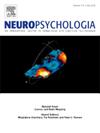Individual-level neuroimaging of cognitive control: from basic science to brain tumor clinical applications
IF 2
3区 心理学
Q3 BEHAVIORAL SCIENCES
引用次数: 0
Abstract
Cognitive control is the ability to pursue goal-directed behavior, select relevant information, and flexibly adapt to changing environments. A wide range of cognitive control functions is subserved by distributed regions primarily in frontal and parietal cortices. The individualized neuroimaging approach emphasizes the importance of functional organization at the individual level to reveal fine-grained details of functional brain networks. Here, we first review how this approach elucidates the multifaceted neural substrates of cognitive control, focusing on the domain-general ‘Multiple Demand’ network. Critically, we highlight the translational promise of this approach in clinical research and practice, where brain mapping and prediction at the individual patient level is a primary goal. Individual-level neuroimaging in patients with brain tumors is introduced as a test case, with a particular focus on cognitive control processes. We demonstrate how integration of multiple modalities is used to achieve precise and comprehensive mapping to advance surgical treatment, clinical decision-making, and post-surgery cognitive outcome prediction, aiming to improve patients' quality of life. Finally, we discuss challenges and avenues to facilitate individualized multi-modality neuroimaging in translational research, promoting the development of personalized diagnosis and therapeutic strategies.

认知控制的个体水平神经影像学:从基础科学到脑肿瘤临床应用
认知控制是追求目标导向行为、选择相关信息和灵活适应变化环境的能力。广泛的认知控制功能主要由分布在额叶和顶叶皮层的区域提供。个体化神经成像方法强调了个体水平上功能组织的重要性,以揭示功能性脑网络的细粒度细节。在这里,我们首先回顾了这种方法是如何阐明认知控制的多方面神经基础的,重点是领域通用的“多重需求”网络。至关重要的是,我们强调了这种方法在临床研究和实践中的转化前景,在临床研究和实践中,个体患者水平的大脑制图和预测是主要目标。个体水平的神经影像学在脑肿瘤患者被引入作为一个测试案例,特别关注认知控制过程。我们展示了如何使用多种模式的整合来实现精确和全面的绘图,以推进手术治疗,临床决策和术后认知结果预测,旨在提高患者的生活质量。最后,我们讨论了在转化研究中促进个性化多模态神经影像学的挑战和途径,促进个性化诊断和治疗策略的发展。
本文章由计算机程序翻译,如有差异,请以英文原文为准。
求助全文
约1分钟内获得全文
求助全文
来源期刊

Neuropsychologia
医学-行为科学
CiteScore
5.10
自引率
3.80%
发文量
228
审稿时长
4 months
期刊介绍:
Neuropsychologia is an international interdisciplinary journal devoted to experimental and theoretical contributions that advance understanding of human cognition and behavior from a neuroscience perspective. The journal will consider for publication studies that link brain function with cognitive processes, including attention and awareness, action and motor control, executive functions and cognitive control, memory, language, and emotion and social cognition.
 求助内容:
求助内容: 应助结果提醒方式:
应助结果提醒方式:


